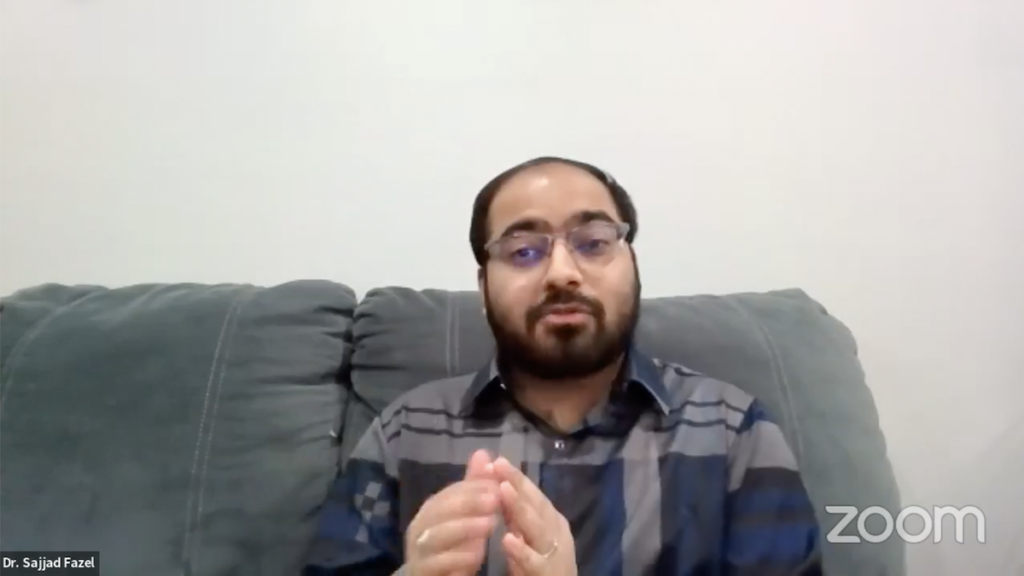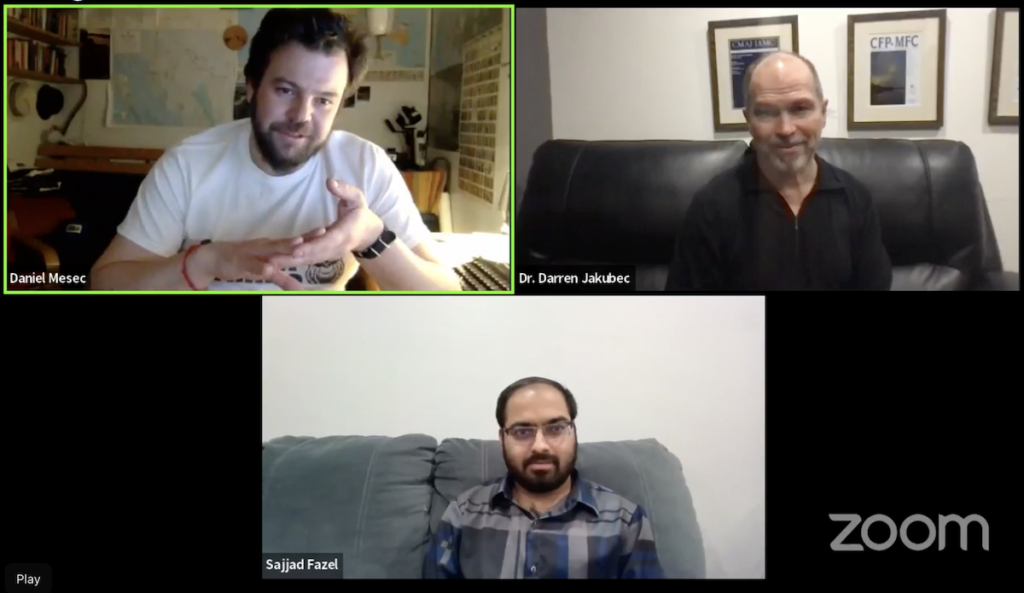As we enter the third year of the pandemic, false and misleading information continues to spread widely across the Skeena.
But just as getting a vaccine can prevent you from becoming sick from COVID-19, there are effective ways to protect yourself against misinformation.
That’s according to Dr. Sajjad Fazel, an internationally recognized public health professional and misinformation researcher at the University of Calgary, who appeared on the latest episode of Skeena Strong’s event “Fighting COVID in the Skeena.”

The first thing to realize is that misinformation often flourishes around fatal and scary diseases. Fazel said that before COVID, people used social media to spread dubious information about cancer.
“The most common misconception is that cannabis cures all types of cancer,” he said.
Even though cancer experts debunked those claims, they still spread widely on social media. “Lies traveled faster than the truth,” he said.
When the COVID pandemic started, there was a lot of scientific uncertainty about the disease. People were scared and looking for reassurance. These were potent conditions for misinformation about COVID to take off.

“Because we, as researchers and scientists, were also trying to figure out what’s going on,” he said. “That was a good gateway and segue for those, we’re spreading this misinformation to come in and say, ‘hey, you don’t have the answer.’”
Fazel says that the next time you see any claims about COVID appearing on your Facebook feed, find out the source for that information, and then Google the source to make sure it’s credible. “That’s number one,” he said.
A second important thing, especially when someone is making claims that sound too good to be true, is to figure out whether that person is personally benefiting.
“We have seen celebrities, social media influencers, who use misinformation as a way to gain popularity,” he said. Fazel pointed to another example where a chiropractor was urging people to take Vitamin D to prevent COVID, and then making money when they ordered vitamins on Amazon.
“It’s good to think about why this misinformation exists and who is spreading it,” Fazel said.
Another handy thing to do is to put scary claims into context.
It’s true that there are some people who experience uncomfortable reactions when they get the COVID vaccine, for example. But the odds are extremely low. And the risk pales in comparison to the much higher chances of catching COVID and getting seriously ill or dying.
Fazel said we make these trade-offs in our lives all the time.
The anti-vaxxers in Ottawa didn’t think twice about driving around in trucks, even though the odds of dying in a car crash are much higher than having a bad reaction from the vaccine.
When it comes to evaluating social media posts about COVID and vaccines, “I always tell people, think of it as a risk-benefit ratio,” he said.
And when it comes to getting vaccinated and boosted, he said, the benefits far outweigh the risks.




